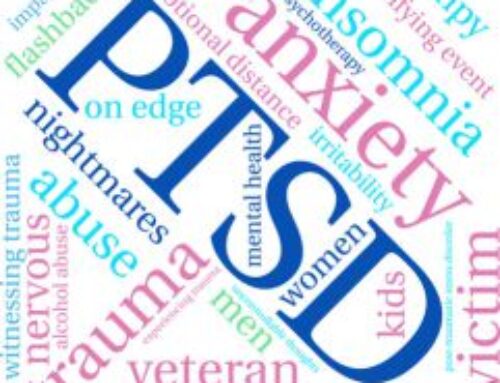Pain affects people every day. It doesn’t discriminate with age, gender or cultural background; it is a worldwide issue, and numbers of sufferers are escalating. It can ruin your life.
Chronic pain affects almost 30 percent of Australians, which means that at any given time nearly three out of ten people are suffering from pain (Stollznow Research for Pfizer Australia, 2010). If we look at adults only then it is approximately 1:3 experiences pain daily and most older Australians experience a degree of daily pain. Then we add the emotional, physical, and financial strain of the sufferer and family, the percentage of those affected by chronic pain is much higher.
To define what Chronic pain is
Chronic pain is different to acute pain. Acute is short term and passes over a few hours, days or a couple of weeks, like when you break a bone, the pain remains until the bone is healed. Chronic pain is long-term pain lasting longer than three months and continues with continued vigour or with only minor intermissions. Chronic pain, therefore, relates to duration, not the degree of pain experienced (Pfizer Health Report, 2011).
According to Chronic Pain Australia “Chronic pain is defined as pain that extends beyond the expected healing time of an injury” (Pfizer Health Report, 2011).
In the Unites States Chronic, Pain is said to be their most costly health problem, with estimated annual costs of $100 billion. These include major pain issues such as lower back pain, cancer pain, arthritis pain affecting millions of Americans each year.
In Australia, it is estimated the cost of chronic pain is over $35 billion annually, which equates to almost $11,000 per person with chronic pain. This includes productivity time lost, burden of pain to family and community and cost on health system
Two people can have identical injuries or conditions, yet experience different levels of pain. Medical science is yet to understand why one person may be susceptible to feeling pain, while another with the same condition doesn’t.
When looking at the reasons why some people experience a higher degree of pain we have found psychological causes of pain identified. Emotional problems such as:
- Depression
- Anxiety
- Grief
- Unexpressed anger
- Emotional overwhelm (GoodTherapy.org, 2013)
Can all add to the degree and level of pain experienced by a person?
Whatever the original cause, pain can continue because of stress, emotional problems or improper treatment. Many people have tried most all drugs available to reduce their level of pain. They may receive some temporary relief however what is needed is a permanent stop to their ongoing pain issue.
If we remove the initial catalyst, as doctors tell us, we should be on the mend, yet the pain may sometimes continue at an unacceptable level, we need to look beyond the physical and into the emotional or psychological reasons this pain continues.
There is considerable research on the reason some people’s pain remains or escalates above expected, and much of it points to emotional connections causing pain to stay or even at times escalating the symptoms of pain. No one wants to feel pain.
Some suffer pain even after medical practitioners tell us the pain level does not comply with the cause or the pain should be significantly lower than currently experienced. Chronic pain may carry on long after the ailment has been controlled or cured (Medtronic, 2013). “It’s in your head” we are told. This may have a degree of accuracy. If we do accept that it may be partly in our head, then we are given the opportunity to change things. If, however, we are instructed, sorry, just put up with it, we have nowhere left to go. In your head, while confronting, is far more beneficial for the sufferer.
Long-term stress creates changes in the body. When our body is under continued stress from emotional or physical pain or both, it produces too much cortisol which can damage both brain and body (Wales, 2012a), hence escalating the feeling of pain within us.
There is an array of treatments and techniques to help manage pain. Many involve training the mind to think differently. You can have a starring role in your pain management recovery. Often people, especially those wanting to avoid more chemicals and drugs, turn to hypnotherapy. Hypnotherapy can retrain your brain to lower your level of pain or discomfort. It works incredibly well for most everyone. The hypnotherapy session can redirect your mind toward other things, so it is not always focused on the discomfort or pain. Countless people say when they are busy, or their mind is diverted, their pain levels decrease.
There is now a new player available to those experiencing chronic pain. Reduce Pain Virtual Hypnotherapy session allows you to do a pain reduction hypnotherapy session in your home, at any time you need it. What the session is designed to do is to allow your mind to dial down the pain to a comfortable level. Sometimes we need to preserve a small degree of discomfort as a reminder of our physical limitations so as not to aggravate the affected area.
By using the Reduce Pain Virtual Hypnotherapy session can permit your mind to take more control and manage your discomfort level. It provides you with a way of reducing and easing the pain level while taking your mind away from the area of discomfort so you no longer notice it.
People suffering from pain have nothing to lose but the discomfort itself. The relaxation session enables each person to be comfortable and relaxed. An amazing feeling for anyone needing a break from their discomfort. The session has been designed by me, a Clinical Hypnotherapist and Psychotherapist for almost 20 years. This session has been widely acclaimed by hundreds of people that have benefited from the therapy. Even my husband, after his leg osteotomy and my friend after her ACL joint procedure, regained full use and almost zero pain. Doctors advised my husband to expect ongoing pain until he would need a knee replacement. That was ten years ago, and while he notices the issue from time to time, he takes no pain medication whatsoever, he walks, surfs and has an active life. He contributes this to the reduce pain hypnotherapy session I provided him. He listened to it a few times and still does now and then if the pain becomes noticeable. When asked he is reminded his knee is stiffer than the other one and he has no cartilage
This session has been widely acclaimed by hundreds of people that have benefited from the therapy. Even my husband, after his leg osteotomy and my friend after her ACL joint procedure, regained full use and almost zero pain. Doctors advised my husband to expect ongoing pain until he would need a knee replacement. That was ten years ago, and while he notices the issue from time to time, he takes no pain medication whatsoever, he walks, surfs and has an active life. He contributes this to the reduce pain hypnotherapy session I provided him. He listened to it a few times and still does now and then if the pain becomes noticeable. When asked he is reminded his knee is stiffer than the other one and he has no cartilage on the outer joint but this is only when he focuses on his knee. The hypnotherapy session takes his mind away from that area. He remains drug-free with no requirement of considering a knee replacement at all.
A few years back I needed a hysterectomy. After the surgery, I used the reduce pain session and required no pain medication after the first 6 hours of recovery. I left the hospital pain free within two days, instead of 5, went back to work in 3 weeks instead of 6 weeks. I suffered no pain, and I contribute this to the reduce pain session.
I encourage anyone experiencing chronic pain to give it a go. You have nothing to lose but your pain. Worst case you will obtain a relaxing session to recharge and revitalize you. The best outcome from the Reduce Pain session is you will be free to move and live the life you deserve with improved comfort.
Time to take back your control and stop letting pain control you. Be proactive in your healing. Get your Reduce Pain session today and start enjoying your life again.
References:
GoodTherapy.org (2013). Chronic Pain. GoodTherapy.org.
Medtronic (2013). Improving life by easing chronic pain. Medtronic, Inc.
Pfizer Health Report (2011). Australians living with chronic pain. Pfizer Health Report, 46.
Stollznow Research for Pfizer Australia (2010). Chronic pain. Stollznow Research for Pfizer Australia. Australia: Pfizer Australia Pty Ltd.
Wales, C. (2012a). The nervous system. Chronic Pain Australia.
Read more from Dr Karen or more about therapeutic Hypnotherapy






